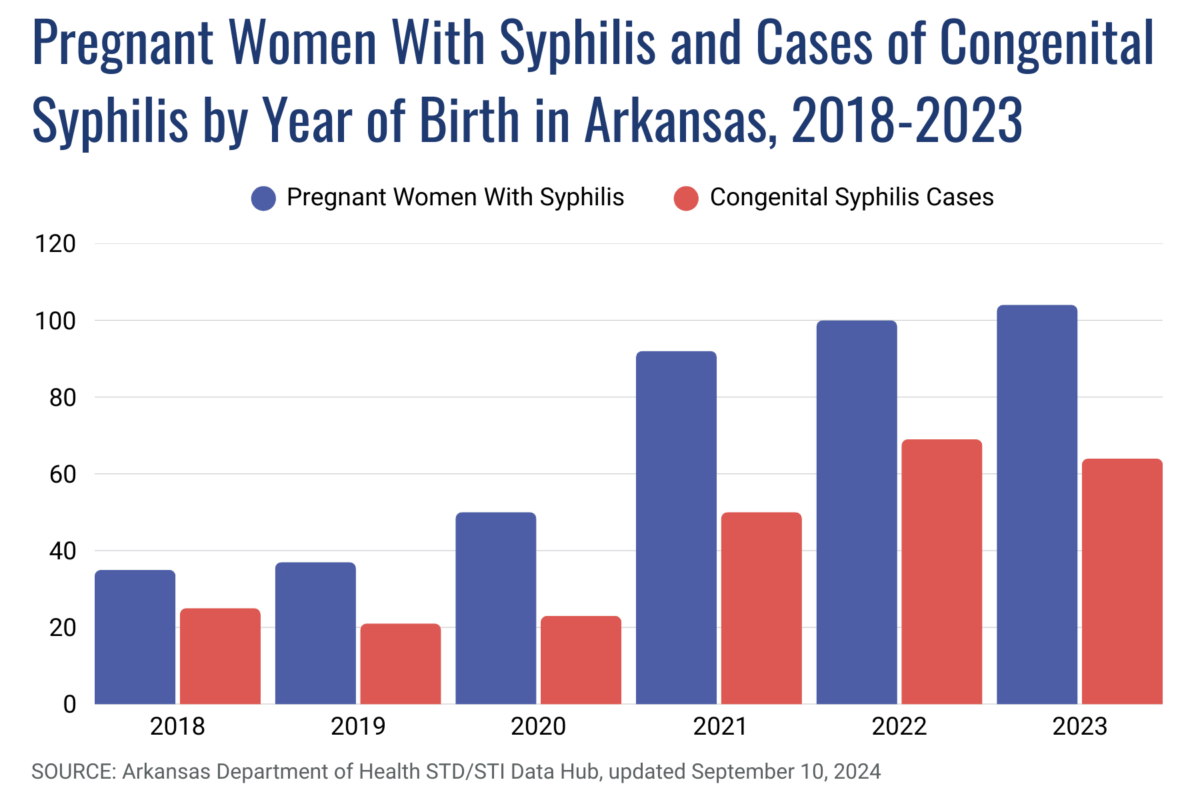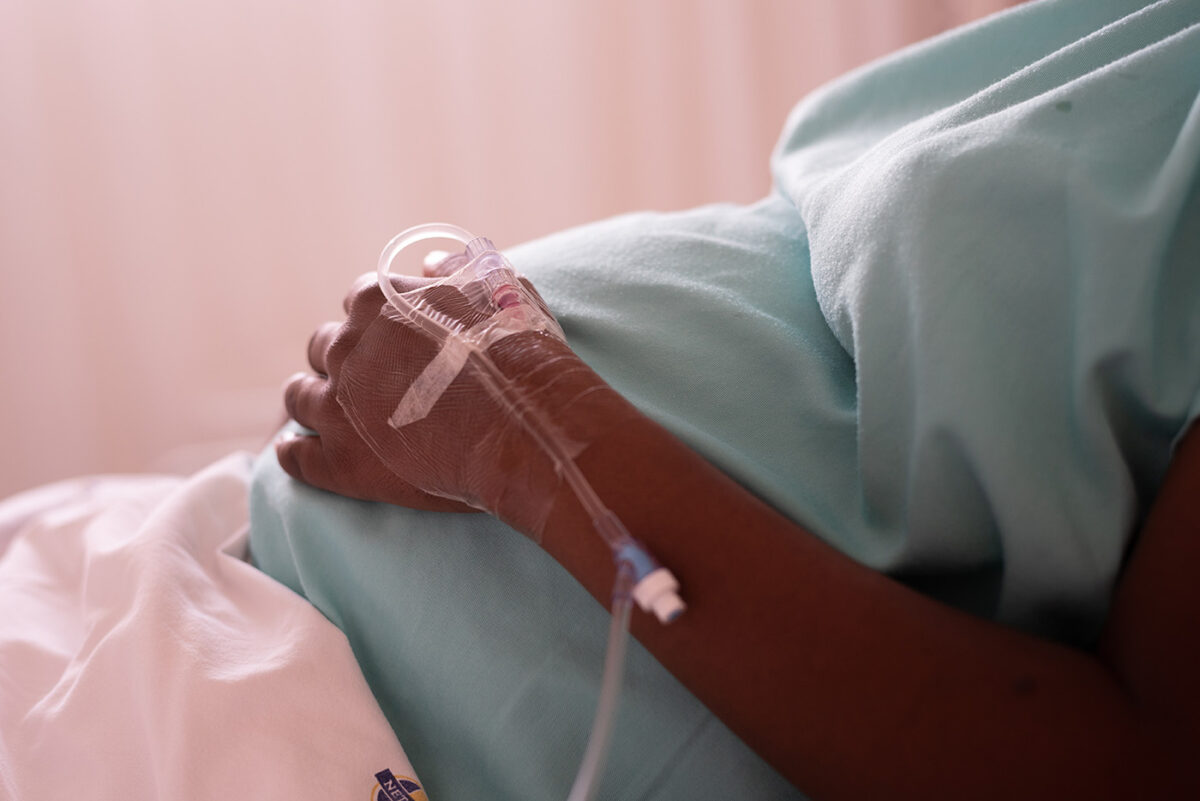
Author
John Lyon
Strategic Communications Manager
Contact
ACHI Communications
501-526-2244
jlyon@achi.net
Cases of congenital syphilis, in which an untreated syphilis infection during pregnancy is passed to the fetus, are surging around the country. To help minimize infection, the U.S. Preventive Services Task Force issued a final recommendation on May 13 that all pregnant women be screened early in their pregnancies for syphilis infection.
Syphilis is a sexually transmitted infection that can be treated effectively with penicillin. Symptoms can include wart-like sores, rashes, swollen lymph nodes, fever, fatigue, muscle aches, weight loss, headaches, and hair loss — but a person infected with syphilis may be asymptomatic or may not recognize the symptoms.
Congenital syphilis is associated with premature birth, low birth weight, stillbirth, neonatal death, and significant abnormalities in the infant such as deformed bones, brain and nerve problems, and meningitis. A baby born with congenital syphilis who is not treated for it may develop symptoms later and may be developmentally delayed, have seizures, or die from the infection.
The task force’s recommendation, which reaffirms a previous recommendation, comes after more than 3,800 cases of congenital syphilis were reported in the U.S. in 2023, the highest annual number reported in more than 30 years. In Arkansas, congenital syphilis cases increased by 156% between 2018 and 2023. The Arkansas Department of Health maintains a dashboard tracking syphilis and other sexually transmitted infections in Arkansas.

The task force said in its recommendation that if a woman is not tested for syphilis early in her pregnancy, testing should occur at the first opportunity, which could be as late as at admission for delivery. It also said everyone with an abnormal syphilis test result should receive timely, evidence-based evaluation and treatment. Nearly 90% of new congenital syphilis cases could have been prevented with timely testing and treatment, according to the Centers for Disease Control and Prevention. Arkansas law requires syphilis testing as early as possible during a woman’s pregnancy.
The U.S. Preventive Services Task Force is an independent, volunteer panel of national experts in disease prevention and evidence-based medicine. It gave the recommendation for congenital syphilis screening an “A” grade, its strongest. Under the Affordable Care Act, preventive services — such as blood tests for syphilis — that receive an “A” or “B” recommendation from the panel must be covered by certain health plans without cost sharing, although that requirement for insurers is currently under a court challenge. The U.S. Supreme Court heard oral arguments in the case April 21.






